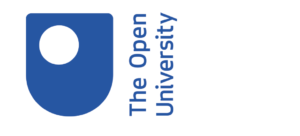Skills shortages impacting profitability, growth and staff wellbeing in Northern Ireland

Employers in Northern Ireland are currently being faced with a skills gap, with more than three quarters (83 per cent) reporting a shortage.
The Open University’s Business Barometer report (2022) was published in partnership with the British Chambers of Commerce and surveyed 144 key employers across Northern Ireland. This statistic has seen a dramatic increase year-on-year, with just over two thirds (69 per cent) of respondents from the 2021 report claiming to have a skills shortage within their organisation.
The Open University’s annual report which provides a temperature check on the UK skills landscape reported that the ongoing skills shortage has worsened over the past year because of factors related to the pandemic, Brexit, the war in Ukraine, and rising business costs.
To resolve the issue, upskilling the workforce is a key solution, with 60 per cent of organisations in Northern Ireland planning to increase investment in staff training over the next year. The talent crisis is set to hit micro-organisations with less than 10 employees the hardest, with only 51 per cent planning to increase investment in staff training in 2023.
John D’Arcy, Director of The Open University in Ireland, says: “The skills shortage in Northern Ireland has seen a significant increase over the past year, making it vital for organisations to invest in their workforces through upskilling. This will help with staff retention, as well as the overall output, profitability and growth of businesses.”
The impacts of the skills shortage
As well as impacting the productivity, growth and profitability of an organisation, the increasing skills shortage is also having a detrimental impact on employee wellbeing, with 75 per cent of Northern Ireland organisations highlighting that the issue is causing an increased workload and having a knock-on impact on the mental health of existing employees. In response, nearly three quarters (73 per cent) of organisations in Northern Ireland have implemented some form of written plan around recruitment, training, addressing skills shortages, environmental, social and governance, or diversity and inclusion.
Lynsey Quinn, Senior Manager, Skills and Partnerships for The Open University in Ireland says: “Our Business Barometer report highlights the need for employers to take a long-term strategic approach to addressing the skills gaps and that it’s more important than ever to take a proactive view on employees’ skills.
“The report also shows that recruitment is tougher than ever, placing a focus on growing talent from within and opening up opportunities for hidden talent both inside and outside the organisation. Critically, staff seem to be under more pressure than ever looking at last year’s report, an increased number of employers admit that the skills shortage is increasing their teams’ workload and impacting wellbeing.”
Lisa Nappin, Head of Business Enterprise, The Business Development Unit adds: “Our survey shows that economic and political factors have had an increased impact on the skills shortage in Northern Ireland. Education plays a vital role in providing a solution to this by relieving pressures on an overstretched workforce.”
How The Open University can help: Microcredentials
To help alleviate the skills shortage, The Open University is offering alternative options, given the increased demand for upskilling and reskilling, to meet employer needs in a flexible and time-friendly way.
The Open University’s microcredentials are university level online professional development short courses – allowing learners to quickly build in-demand career skills and knowledge to help them get ahead in their career.
Created by leading Open University academics and endorsed by high profile industry partners, these courses provide a perfect balance of academic excellence and business, workplace and sector relevance. We currently offer a wide range of microcredentials in key areas such as leadership and management, computing and digital technologies, and health and social care. Microcredentials are delivered at degree and postgraduate level and can be completed within 12 weeks.
John D’Arcy explains: “Lots of businesses in Northern Ireland are taking the first step towards fixing the skills shortage by encouraging staff to engage with microcredentials that allow employees to pick up skills quickly and effectively.”
The Open University’s modular offering gives organisations an informed choice across a wide range of subject areas. As a leading provider of supported distance learning, The Open University is also able to offer a broad and innovative curriculum which includes flexible, focused and accredited short courses that offer value for money.
Developing a skills strategy for the future
As highlighted in our Business Barometer report, the skills gap is growing year-on-year, impacted by factors beyond the direct control of many employers. Therefore, organisations are becoming more aware of the importance of investing in new learning pathways for their staff to help improve staff wellbeing, as well as increasing growth, profitability and output.
The Skills for a 10X Economy Northern Ireland skills strategy highlights three key policy drivers which are key to the development of the skills agenda including: addressing skills imbalances, strengthening digital learning and developing a culture of lifelong learning.
The recent manifesto developed by The Open University in Northern Ireland ‘The Future is Flexible’ supports lifelong learning and widening participation. As one of three universities in Northern Ireland, with specific expertise in part-time, widening participation and online provision, we look forward to developing our outreach through a range of partnerships. We will continue to work with businesses to support the development of our workforces, providing solutions that work for employers and employees alike, for the benefit of wider society.
Key contacts:
Lynsey Quinn, Senior Manager for Skills and Partnerships, The Open University in Ireland:
lynsey.quinn@open.ac.uk
Lisa Nappin, Head of Business Enterprise, The Business Development Unit: lisa.nappin@open.ac.uk
For more information visit: open.ac.uk/northern-ireland







